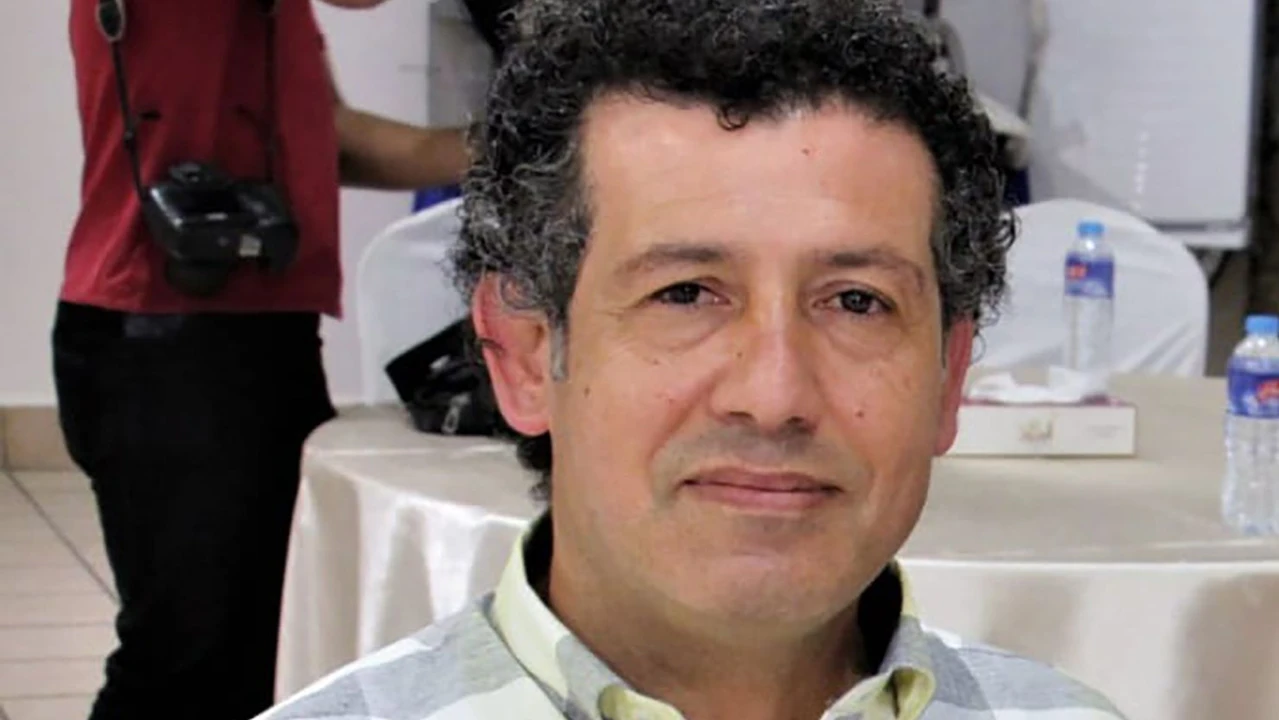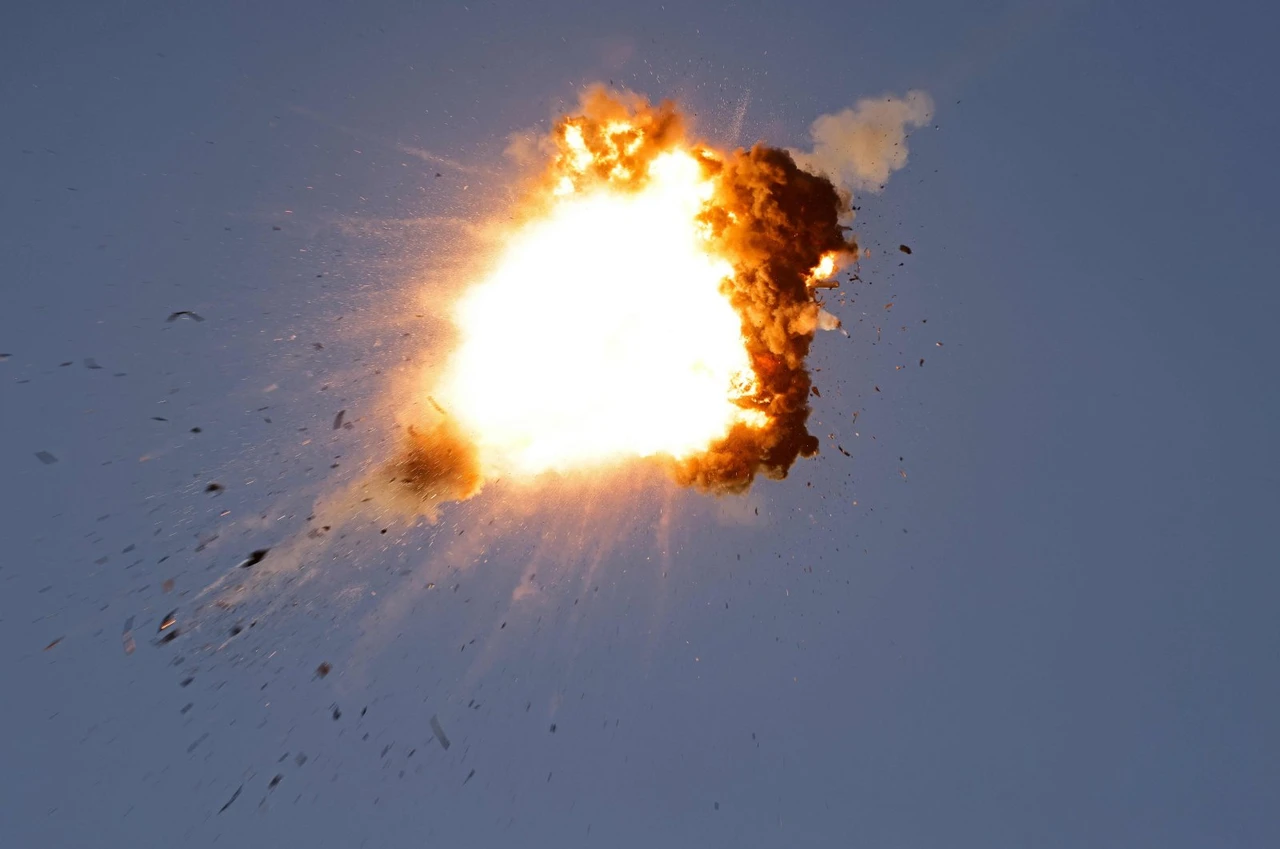Gaza doctor’s death highlights Israel’s mistreatment of Palestinians
 Dr. Adnan Al-Bursh, 50, a famed Palestinian surgeon in Gaza. (Photo via CNN)
Dr. Adnan Al-Bursh, 50, a famed Palestinian surgeon in Gaza. (Photo via CNN)
Dr. Adnan Al-Bursh, a renowned orthopedic surgeon, dedicated his life to healing the wounded and serving his community at Gaza’s Al-Shifa Hospital. In a career spanning decades, he became a symbol of resilience in the face of unrelenting conflict, capturing global attention with his tireless work and poignant documentation of life under siege.
Dr. Al-Bursh, known for his expertise and commitment, had previously drawn international recognition when a photo of him, blood-soaked from surgeries during an earlier conflict, went viral in 2018. Yet, his most trying moments came in the wake of renewed hostilities in October 2023, as he faced unprecedented challenges under catastrophic conditions.
Dr. Adnan Al-Bursh: A surgeon in crisis
When war erupted last October, Dr. Al-Bursh worked ceaselessly, performing surgeries around the clock as Al-Shifa Hospital struggled with acute shortages of fuel, food, and medical supplies. Video footage from his phone showed him digging mass graves on hospital grounds for the growing number of dead, his scrubs stained with dirt and blood.
“Despite the pain, we are steadfast,” he said in one recording, his voice resolute amid chaos. His wife, Yasmin, recounted urging him to prepare for the inevitable influx of casualties. “Adnan was needed every time there was a war,” she said. “He did not stop.”
The humanitarian crisis at Al-Shifa worsened as Israeli forces advanced on the hospital. Accusations from Israel that the hospital harbored Hamas command infrastructure, denied by the group, added to the tensions. By mid-November, thousands of displaced residents sheltering in the compound were ordered to evacuate. Dr. Al-Bursh documented long lines of people leaving, but he stayed behind, relocating to the Indonesian Hospital in northern Gaza.
Gaza surgeon’s grim reality
The situation at the Indonesian Hospital proved equally dire. Patients languished with infected wounds, some awaiting surgery for over 10 days. On November 20, Israeli projectiles struck the hospital, killing 12. Dr. Al-Bursh survived, but the destruction deepened his despair. “The destruction is everywhere,” he said in another video.
By December, Dr. Al-Bursh had moved to Al-Awda Hospital, where he continued treating patients amid mounting fatigue. These images, shared by the hospital’s social media, were the last known pictures of him.
How Dr. Adnan Al-Bursh was arrested?
On December 5, Israeli forces surrounded Al-Awda Hospital. Male staff, including Dr. Al-Bursh, were ordered to leave under threat of the building’s destruction. Witnesses described soldiers specifically calling for Dr. Al-Bursh, who was later detained. The Israeli military confirmed his arrest, stating he was transferred to Sde Teiman, a processing camp for detainees. Allegations of mistreatment surfaced, with reports of severe beatings.
Transferred to Ofer Prison near Jerusalem in April, Dr. Al-Bursh died shortly after his arrival. A statement from Palestinian prisoner support groups announced his death, while Israeli authorities provided no explanation. Eyewitness accounts described him being brought into the prison in poor condition, reportedly assaulted and left incapacitated. Prisoners raised alarms when he collapsed shortly afterward.
Questions of mistreatment and legacy
Israeli authorities deny allegations of mistreatment, maintaining that all detainees’ rights are upheld. “We are not aware of the claims you described,” said an Israeli Prison Service spokesman, inviting formal complaints to be investigated.
Dr. Al-Bursh’s family and colleagues refute claims that he was involved in militant activity. “He was not charged,” said Daqqa, a Palestinian rights advocate, emphasizing that many detainees from Gaza face indefinite detention without trial.
For Yasmin, the loss is immeasurable. “He was the light of my life, and I lost him,” she said, mourning her husband’s passing as both a personal tragedy and a devastating blow to Gaza’s medical community.
Dr. Al-Bursh’s story, marked by unwavering dedication and ultimate sacrifice, stands as a testament to the human cost of Gaza’s enduring conflict.



